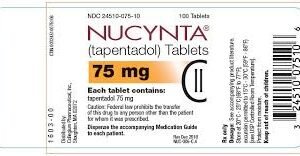Description
Zipsor: A Comprehensive Overview
Zipsor is a prescription medication used for the treatment of mild to moderate acute pain in adults. Its active ingredient is diclofenac potassium, a nonsteroidal anti-inflammatory drug (NSAID). This formulation is notable for its rapid onset of action and is particularly effective for short-term pain relief.
Key Characteristics of Zipsor:
- Active Ingredient: Diclofenac potassium.
- Drug Class: Nonsteroidal anti-inflammatory drug (NSAID).
- Indications:
- Relief of mild to moderate acute pain.
- Commonly prescribed for conditions like musculoskeletal injuries, postoperative pain, or other acute pain scenarios.
Mechanism of Action:
Zipsor works by inhibiting the enzymes cyclooxygenase (COX-1 and COX-2). These enzymes play a critical role in the production of prostaglandins, which are chemicals that mediate inflammation, pain, and fever. By reducing prostaglandin levels, Zipsor helps to alleviate pain and inflammation.
Dosage and Administration:
- Zipsor is available in 25 mg liquid-filled capsules.
- The typical dosage is 25 mg four times daily, taken with or without food. Patients should follow their healthcare provider’s instructions closely.
Advantages of Zipsor:
- Rapid Absorption: The liquid-filled capsule formulation allows for faster absorption compared to traditional tablet forms of diclofenac, providing quicker pain relief.
- Convenience: Small capsule size is easier for some patients to swallow.
Side Effects:
As with other NSAIDs, Zipsor can cause side effects, including:
- Gastrointestinal Issues: Nausea, stomach pain, heartburn, or diarrhea.
- Cardiovascular Risks: Increased risk of heart attack or stroke, especially with prolonged use.
- Renal Impairment: Potential for kidney problems.
- Allergic Reactions: Rash, itching, or swelling.
Patients should contact their healthcare provider if they experience severe side effects, such as chest pain, shortness of breath, or black, tarry stools.
Warnings and Precautions:
- Cardiovascular Risk: Like other NSAIDs, Zipsor carries a risk of serious cardiovascular events, including myocardial infarction and stroke. This risk may increase with duration of use.
- Gastrointestinal Risk: There is a potential for GI bleeding, ulceration, or perforation, especially in older adults or those with a history of ulcers.
- Pregnancy: Zipsor is not recommended during late pregnancy due to the risk of premature closure of the ductus arteriosus in the fetus.
- Interactions: It may interact with other medications such as anticoagulants, corticosteroids, or other NSAIDs.
Use in Special Populations:
- Elderly: Increased sensitivity to side effects, especially GI and cardiovascular risks.
- Children: Safety and efficacy in pediatric patients have not been established.
Conclusion:
Zipsor offers a fast-acting option for short-term pain management, particularly in conditions where quick relief is essential. However, patients should use it under close medical supervision due to the risks associated with NSAIDs. Proper adherence to dosing guidelines and awareness of potential side effects can help maximize its benefits while minimizing risks.






Reviews
There are no reviews yet.